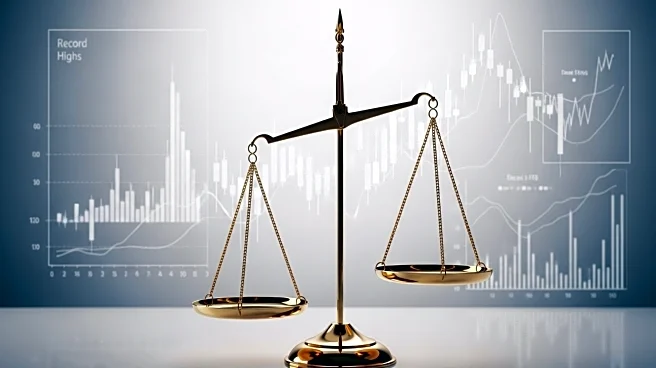What's Happening?
The U.S. stock market has reached unprecedented levels of valuation, with the S&P 500 soaring nearly 30% since April. This surge has led to stocks being considered expensive, raising concerns about their vulnerability to sudden market shifts. The Dow, S&P 500, and Nasdaq experienced declines as investors grappled with uncertainties, including President Trump's ongoing disputes with the Federal Reserve and legal challenges surrounding his tariff policies. Despite recent gains, metrics such as the Buffett Indicator suggest that the market may be overvalued, signaling potential risks for investors.
Why It's Important?
The high valuation of U.S. stocks has significant implications for investors and the broader economy. Elevated stock prices can lead to increased market volatility, making investments riskier. The concentration of market value in a few large tech companies, known as the 'Magnificent Seven,' further exacerbates this risk, as investors become less diversified. Additionally, rising Treasury yields may divert investments away from stocks, potentially leading to market corrections. These factors highlight the need for cautious investment strategies and could influence economic policy decisions.
What's Next?
Investors are closely monitoring the market for signs of a potential downturn, especially as historical trends indicate September could be a challenging month for stocks. The Federal Reserve's actions and President Trump's influence on monetary policy will be critical in shaping market dynamics. Analysts suggest that the market's reliance on a few tech giants could lead to increased volatility if these companies fail to meet high expectations. The ongoing geopolitical and economic uncertainties may also impact investor sentiment and market performance.
Beyond the Headlines
The current market situation raises ethical and strategic questions about the sustainability of relying heavily on a few tech companies for market growth. It also underscores the importance of maintaining Federal Reserve independence amidst political pressures. Long-term shifts in investment strategies may be necessary to address these challenges and ensure a balanced and resilient market.










